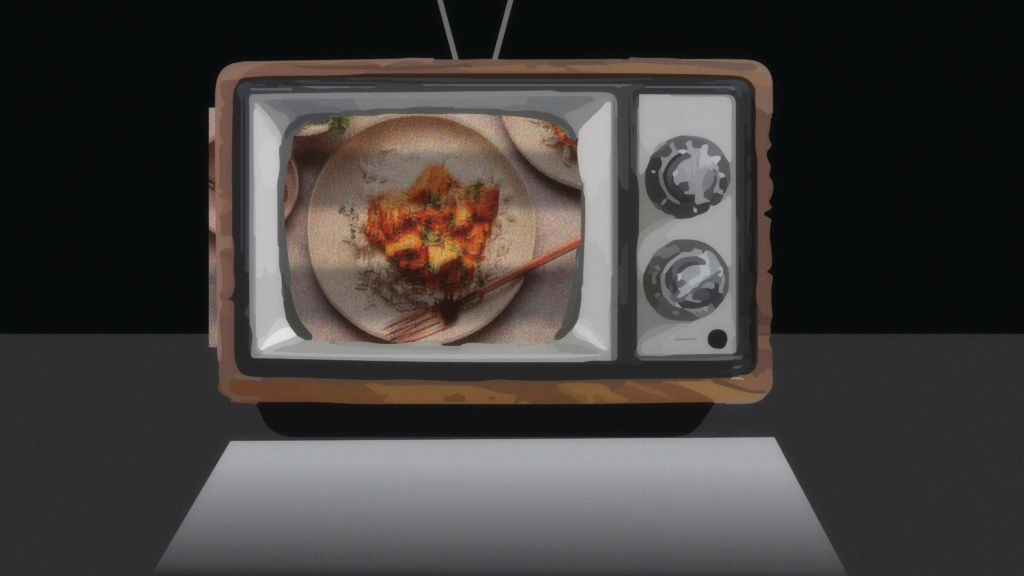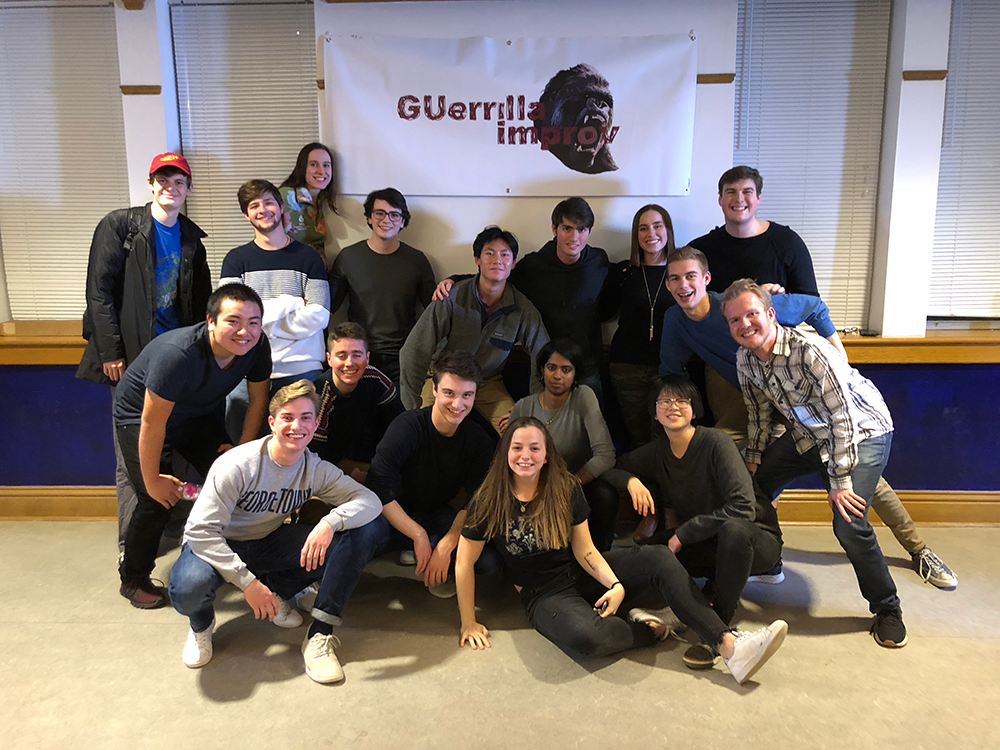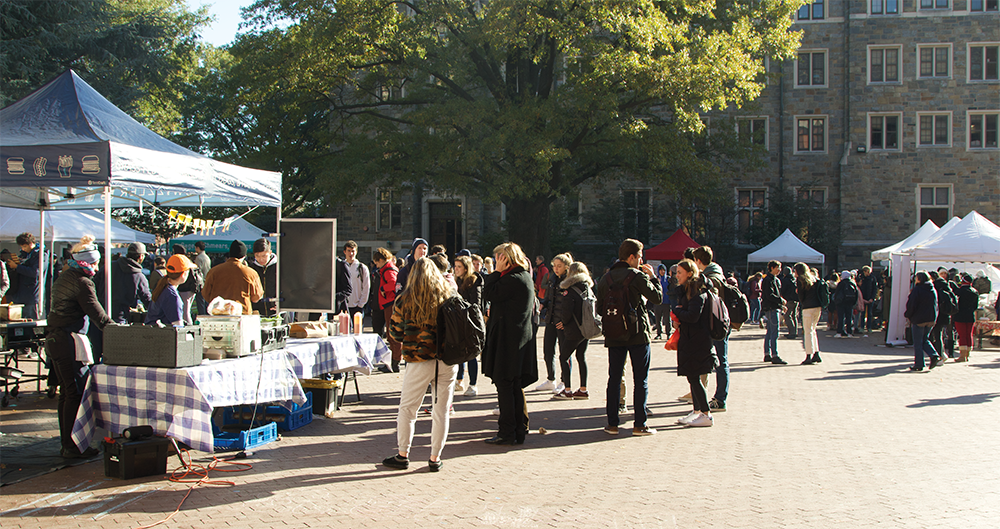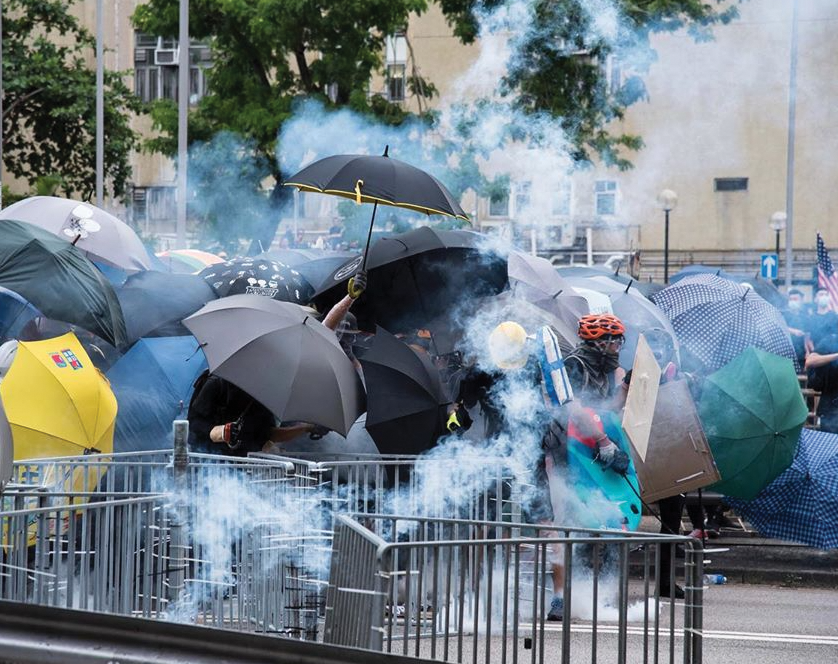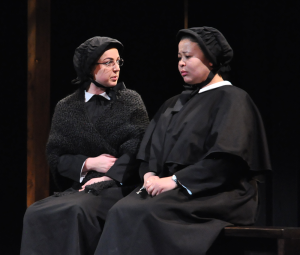
Maddie Kelley (COL ’16) and Marlene Cox (COL ’16) drew the audience into an unsettling world of uncertainty in “Doubt: A Parable”
Emerging Actors
The dawning of a new theater season comes with the difficulty of having just graduated experienced actors but also comes with the excitement of seeing actors bloom and step up to the plate. This year, we saw countless actors deliver impressive first performances or take advantage of an opportunity to play a more featured role.
One of these notable actors is Amanda Weise (COL ’16) who made a splash in Nomadic Theatre’s production of “pool (no water).” Last year she was seen in the senior thesis “Golden Shards,” and in the ensemble of “Spring Awakening.” In the latter, she played a giggly schoolgirl with little room for dramatic acting choices. However, any who saw her in “pool (no water)” could definitively say that she outgrew the pigtails and the bows and stepped into something much bigger than herself. In “pool (no water),” Weise delivered a dynamic, biting and emotionally honest performance and generously added her voice into the cast of six.
Hannah Hauer-King (COL ’14), who directed both “Spring Awakening” and “pool (no water),” has seen Weise grow in her time here. “She was really fantastic and such a strong cast member and really supportive in ‘Spring Awakening,’ but I didn’t really anticipate or know I was going to cast her in pool until she came into auditions and made it impossible for me not to,” Hauer-King said.
She worked with the other cast members with great fluidity while standing out when appropriate. “Not only does she have such a work ethic, not only do all of her fellow other actors trust her, but she really can play pretty much any role. She has a kind of emotional maturity and scope that a lot of other actors don’t have,” Hauer-King said.
Although she will be abroad come the fall, one should look forward to seeing what she will do upon her return.
Maddie Kelley (COL ’16) found herself rather busy this year, performing in three productions across a myriad of genres. Last year, Kelley was seen as one of the Trojan women in “Trojan Barbie” and as one of the cast members of the workshop production “Things That Go!” but was given many more opportunities this year to come into her own as an actress. She played the blushing ingenue in Mask & Bauble Dramatic Society’s production of Woody Allen’s comedy “Don’t Drink The Water;” several tragic characters on the brink of transformation in Brendan Quinn’s (COL ’14) experimental senior thesis coproduced by the Department of Performing Arts and Nomadic Theater, “A Mouthful of Birds;” and the rigid and determined Sister Aloysius Beauvier in the Department of Performing Arts’ production of “Doubt: A Parable.”
What is remarkable about Kelley’s season is not just that she performed each of these roles brilliantly, but also was able to conquer three vastly different characters of three incredibly varied shows of three different companies.
“To me, what is most impressive about her process is that she is a smart actor — she thinks a lot about the text and style of theater and learns with each new role she plays,” Andrew Walker (SFS ’16), assistant director for “A Mouthful of Birds,” said. “Maddie is one to ask questions and take direction, making the creation of a character a very collaborative process; still, each time she performs or makes changes, she does something that really only she is able to do.”
Kelley will be studying at the London Academy of Music and Dramatic Art this fall in a rigorous conservatory program that will be sure to more finely hone her acting abilities.
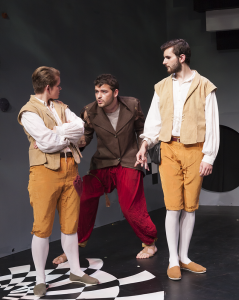
Sean Craig (COL ’16) stood out as one of the only grounded characters in a sea of confusion and philosophical rhetoric in “Rosencrantz and Guildernstern are Dead.”
Sean Craig (COL ’16) gave a compelling performance last year as Herr Stiefel and Herr Sonnenstich in “Spring Awakening,” but was given greater acting challenges this year as Rosencrantz in the philosophical Tom Stoppard play “Rosencrantz and Guildenstern Are Dead,” and as Hal in Mask & Bauble’s production of “Proof.” In the former, he stood out as one of the only grounded characters in a sea of confusion and philosophical rhetoric, offering charming one-liners and a little bit of levity to the show. “He’s very willing to give and take on stage. So he’ll see what you’re doing and he’ll respond to it and he’ll create something new with it, but it’s always taking into account what the character would do,” Taylor Rasmussen (COL ’16), who played Guildenstern in the production, said. The cast members of “Proof” shared a similar sentiment during the Mask & Bauble production where Craig delivered a believable and impassioned performance as a somewhat awkward but determined young mathematician. Craig’s ability to remain genuine and fully immersed on stage is truly notable. “I’ve only ever seen him commit wholeheartedly to whatever role he’s been given,” Rasmussen said.
Best Shows of the Year
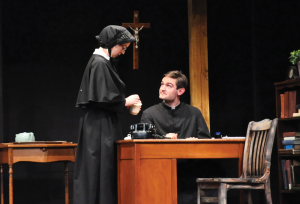
Maddie Kelley (COL ’16) and Addison Williams (COL ’14) gave powerful performances that created a tense web of secrecy in “Doubt: A Parable.”
“Doubt: A Parable,” “A Mouthful of Birds” and “pool (no water)” were three major standout shows of this year. The scripts were compelling and challenging and were pulled off with aplomb, but what truly made them notable were the trust and passion with which they were infused.
In “Doubt: A Parable,” there is much speculation as to whether or not Father Flynn committed the crime of which he is accused. The actor playing that character must make a decision as to whether or not he did before the performance begins. In the Georgetown production, Addison Williams (COL ’14) and Caleb Lewis (COL ’16), who played the role of the Father on alternate nights withheld their respective decisions from their fellow actors. Both of these actors had to make their own decisions about what the duplicitous Father Flynn did and did not do and finely tuned it during the rehearsal process. This required them to work with conviction and to develop their on-stage relationships with Kelley, who played Sister Aloysius Beauvier, and Elizabeth-Burton Jones (GRD ’14), who played Sister James.
Caryl Churchill’s “A Mouthful of Birds” is an incredibly difficult play dealing with themes of sexuality and mental illness in an experimental and unconventional manner. The unusual nature of the play made it far different from anything any of the other actors had taken part in and required them to all step out of their comfort zones and shed any inhibitions they may have previously had. Quinn created a symbiotic and accepting rehearsal room for his actors to be able to trust in him, themselves and each other more fully.
“Brendan was very big on make sure we all understood a lot of the history of the show and he and Nora [Rosengarten (COL ’14)] were so great with choreography and making sure we trusted our own bodies and that we felt safe within ourselves,” Mack Krebs (COL ’16) said.
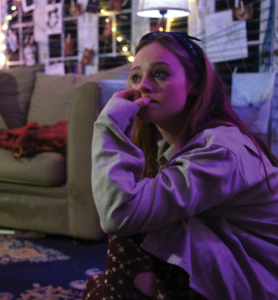
Shannon Walsh (COL ‘Mark Ravenhill’s “pool (no water)” is written as a single, long form monologue that is then divided up at the discretion of the director. It is a gritty, tragic and emotionally exhausting play that required the actors to form the characters during the rehearsal process.
“We got to inject a lot of ourselves into our characters and we didn’t have to adhere to what was written down in a character bio,” Shannon Walsh (COL ’15) said.
The show was set in a living room, disallowing the very limited audience from hiding their faces in the black of a large auditorium and forcing the actors to receive immediate feedback, as opposed to performing for an anonymous space. This required them to depend on each other and the directing choices of Hauer-King and to remain confident in what they were doing. Although the topics were dark and heavy, Hauer-King created a safe rehearsal space for the actors.
“I think a lot of the times, rehearsal was strangely cathartic because you can take any anger you’re feeling and channel it into something beautiful rather than something negative,” Weiss said.
MORE YEAR IN REVIEW 2013-2014








